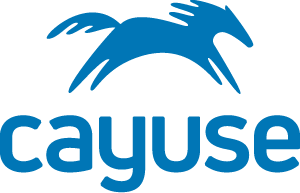Proposal Development Resources
Contact Us
Office of Research, Scholarship, and Sponsored Programs
3900 University Blvd.
Tyler, TX 75799
Office Hours:
M-F 8 a.m. - 5 p.m.
800 UT TYLER
Ph: 903.565.5858
research@uttyler.edu
ORSSP Health Science Center
11937 U.S. Highway 271
Tyler, TX 75708
Office Hours:
M-F 8 a.m. - 5 p.m.
Ph: 903.877.7392
Fx: 903.877.7672
grants@uthct.edu
Proposal Development Resources
Office of Sponsored Programs
The Office Sponsored Programs (OSP) is committed to helping faculty and staff find funding sources and submit well-written proposals to external sponsors. Pre-award staff are trained to support principal investigators in searching for funding sources and in developing a proposal and budget that meet sponsor guidelines.
Outside Activities and Interests Reporting
Required Disclosures When Submitting a Grant Proposal
Cayuse

Cayuse is a cloud-based research administration system used for managing proposals for external funding and externally funded awards, including routing for internal reviews and approvals. Faculty and staff at UT Tyler (both campuses) have access to the Cayuse Sponsored Projects Module (SP). Faculty and staff can learn how to prepare a proposal in Cayuse by reviewing a recorded training.
You can start practice preparing a proposal in the Cayuse Training Platform. You can also review the OSP Cayuse Proposal Form guidance document to learn more about the information you will need to provide when preparing a proposal in Cayuse. The Cayuse Sponsored Projects module in the training platform looks and functions just like the proposal form in the production version of Cayuse.
Once you are ready to begin a proposal to submit for review, you can go to the production version of Cayuse. As a reminder, proposals should be titled following the training video: [Last Name] [Sponsor Acronym] [Funding Opportunity Acronym] [Fiscal Year]. Example: Smith NIH R01 2025.
Cayuse also has required deadline and documents that must be attached before your proposal is under review. Full approval is required before submission to the sponsor is allowed.
Looking for funding?
OSP has compiled a list of funding opportunity databases with links to the databases. Most of the databases are free to use. In addition, UT Tyler subscribes to Pivot, an online funding database described in more detail below.
Pivot Funding Database
UT Tyler subscribes to the Pivot-RP funding database, an online tool available to faculty, staff and students with UT Tyler email addresses (including Patriot email addresses), for locating sponsored funding opportunities. After creating a Pivot Log-In, users can track funding opportunities, save search results, and email search results. Create a Log-In from any on-campus computer by going to the Pivot RP homepage and choosing "Create account" and then select the "Use Email Address/Create Password" option. The program recognizes UT Tyler's IP addresses which allows users to use their UT Tyler email address as a user name and create a password. Faculty and staff can also set up their Pivot profiles which allows potential collaborators and funders to contact them with potential opportunities.
ProQuest has developed a series of training videos on using the Pivot funding database that are available for viewing on YouTube.
Local Foundations and Organizations
Interested in submitting a proposal to a local foundation or organization? Check with UT Tyler Office of University Advancement before starting your application. Email us.
General Guidance for Writing a Research Proposal
Information about the federal grants world is available on the Grants.gov Grants 101 webpage. Michigan State University offers a Guide for Writing a Funding Proposal written by S. Joseph Levine, Ph.D.
Additional links to helpful grant writing resources are provided on the OSP Grant Writing Guides and Resources page.
UT Tyler Information for Grant Proposals
Information regarding UT Tyler that is often required on grant proposals submitted by employees of the main campus can be found on our Facts for Proposals webpage.
Building Your Biographical Sketch for Federal Grants
Building your biographical sketch using SciENcv (Science Experts Network Curriculum Vitae) eliminates the need to repeatedly enter biosketch information into federal grant proposals. You can manually create your biosketch in SciENcv or import information you may already have entered in eRA Commons, My Bibliography, PubMed or ORCID. Information including identification numbers, affiliations, education, honors, awards, personal statement, contributions, grants, publications, collaborators, and patents can be entered or imported into SciENcv. You can then output your information in National Institutes of Health (NIH) biosketch format, National Science Foundation (NSF) biosketch format or Institute of Education Sciences (IES) biosketch format.
The National Science Foundation requires the use of SciENcv to produce an NSF-compliant PDF version of the required biographical sketch and current and pending support document beginning October 23, 2023.
The National Institute of Health will begin requiring the use of SciENcv for the biographical sketch and other support document beginning May 25, 2025.
Visit the OSP Faculty Development Workshops webpage for recordings and presentation files of workshops presented on how to use SciENcv.
Creating an ORCID iD
An ORCID iD is a persistent digital identifier that you own and control. It distinguishes you from every other researcher. You can connect your ID with your professional information - affiliations, grants, publications, peer review, and more. You can use your iD to share your information with other systems, such as SciENcv.
The National Institutes of Health encourages everyone from graduate students to senior scientists to register for an ORCID account.
Create your iD at https://orcid.org/my-orcid.
Need Help Determining If Your Research Involves Human Subjects?
NIH has updated its human subjects research decision tool to reflect changes effective in the 2018 Revised Common Rule. Answer a few quick questions to find out if your research could be considered human subjects research or if it may be exempt from federal regulations.
Contact Us
Office of Research, Scholarship, and Sponsored Programs
3900 University Blvd.
Tyler, TX 75799
Office Hours:
M-F 8 a.m. - 5 p.m.
800 UT TYLER
Ph: 903.565.5858
research@uttyler.edu
ORSSP Health Science Center
11937 U.S. Highway 271
Tyler, TX 75708
Office Hours:
M-F 8 a.m. - 5 p.m.
Ph: 903.877.7392
Fx: 903.877.7672
grants@uthct.edu